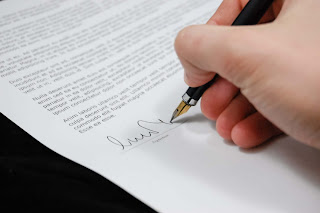How to write a Statement of Purpose?
Prof Andrew Ng, former faculty at Stanford University, provided good insight on what the graduate student admission committee looks for in a personal statement (also known as statement of purpose) from a applicant on his website [1]. The overall points raised are also applicable to any SOP not just for university admissions.
I made a summary of the points raised for my personal use (and hence the first part is written in first person). I felt that I should share it on my blog for others who might find it useful. Here are my notes on the how to write a SOP and more importantly what not to write in an SOP for a graduate application.
- Previous relevant experience
- Discuss small number of relevant projects
- Role in the project
- Specific work
- Insights I had, experiments and outcomes
- Result - publication, award, impact
- Briefly mention alarge number of projects
- Showing breadth of experience
- If relevant then better
- If not, then mention it only if it’s a large part of who I am
- Personal life story vs. professional background
- Little about myself - briefly
- Let the committee know me
- Why / from when / how come -- am I interested in this field?
- Career plan - involves this program
- In brief not in detail
- Unsubstantiated claims about the following are not helpful -
- How enthusiastic I am
- My commitment to work really hard if admitted
- Life philosophy
- Avoid statements that are easy to make, by almost anyone - these are worthless
- Highly unusual or moving life stories - these are worth mentioning
- If not then briefly talk about personal background/goals/motivations
- Don’t bother talking about personal life story
- Why is it good for the university to accept you?
- DO NOT talk about why it is great for me to get into that program
- Write about why is it great for the university to have me
- Mentioning possible advisors
- Mention several professors I am interested in working with
- Not just one professor - as it might limit the chances
- Listing a faculty not in the dept will hurt my chances
- Research area
- Too narrow, makes it difficult
- Mention general areas that multiple faculty are working in
- Approach
- Write a generic SOP for all schools
- Last 1-2 paragraphs customize to each university
- About 1 to 1.5 pages is a good length
- Provide a link to my website
- If resume is not accepted, nor a place to list publications only then list the publications at end of SOP
Please include the following information when writing your SOP:
- Make your statement concise. "Concise" means that you have given thought to the composition of your statement to make it a clear and cohesive piece of prose (with a natural/logical flow) that covers all the necessary points and doesn't cover unnecessary points.
- Describe what your principle research interests are.
- Describe which experiences have contributed toward your preparation for further study in this field.
- Describe one research problem, project or area for Electrical Engineering that excites you.
- Describe how you are a "match" for our program. Explain what attracts you most to the Graduate Program, to which you are applying.
- Align your research interests with one or more of professors.
- Tell us what are your future goals are.
- What the statement of purpose should not be:
- The statement of purpose is not about character (honesty, sincerity, conscientiousness, etc.).
- The statement of purpose should not be an autobiographical sketch
- For example, the story of your first computer when you were 10 years old and how it inspired you to devote your life to Electrical Engineering.
All the best for your application!
References:
[1] Prof Andrew Ng's website - http://graddecision.org/

Comments
Post a Comment